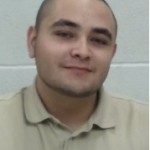Friday’s Top Hits Karaoke event gave students and residents of the Citizens of the World house an opportunity to take to the stage and perform songs in their native languages.
Top Hits Karaoke was the house project of sophomore Emmy Chien, a member of COW house. Chien says she decided to hold an international karaoke night to bring her hobbies from her home in Taiwan to American soil.
“I go to Karaoke once a week with my friends back in Thailand, so I want to introduce my hobby to OWU,” she said. “Because COW House is an international house, I found the Mike Karaoke System that includes English, Chinese, Taiwanese, Spanish, Japanese and Korean songs, which allows students from different countries to participate.”
Only about fifteen to twenty students attended the event, but Chien said there was no lack of spirit despite the intimate audience. With clapping, singing, screaming and dancing, she said if there was a shy performer, it did not take long for him or her to warm right up.
The confidence exuded by performers could be attributed in part to their pride in their nationality.
“COW house emphasizes the globalization of the world, so by gathering students from different countries to sing out their heart, we all get to know each other more,” Chien said.
“The diverse environment provided by COW house was highlighted through this event because without the diversity in house members, the event would not have been successful.”
Chien said junior Ashley Madera, the house moderator, noticed diversity among performers was not limited simply to their languages, but was also shown in their individual song selection. While American students gravitated towards poppy tunes, the Chinese students sang slower ballads.
“The way the American students interact when singing was also different than when the Chinese students sang,” Chien said. “It was like team work when the American students sang a song they all know; they shared the two microphones, clapped and danced. Amongst the Chinese students, only two students sang and the others listened.”
Freshman Kerrigan Boyd said the event was a fun way to learn about different cultures and recognize the true diversity on OWU’s campus.
“It was really cool because people did songs in Chinese and people could see the words on the screen,” she said. “It put a fun twist on the whole thing.”
Madera agreed with Boyd, saying she appreciated the “true talent” of the performers.
“I am always amazed at how comfortable some people feel in front of the microphone and this event was no exception,” Madera said. “Some people would be surprised to know that some of the guys on campus have amazing voices.”
As the COW house moderator, Madera realized how connected the event was to the house’s mission statement.
“I think this event was a great kick-off to the upcoming events for the Citizens of the World House this semester,” she said. “I think it truly embodied our mission to immerse cultures from around the world in an activity we are all familiar with.”
Author: Phoebe Christine Bush
Sound-Off OWU: What are your spring break plans?
Greek of the Week

Laurel Fuller
Kappa Kappa Gamma
After a successful night of philanthropy fun, sophomore Laurel Fuller is The Transcript’s first Greek of the Week. This member of Kappa Kappa Gamma recently planned Kappa Karaoke, an event that included all of the fraternities and sororities as participants in a karaoke contest to help raise money for Kappa’s philanthropy, “Reading in Fundamental.” Fuller can not only handle planning Greek events on campus, but she also has control of the wheel of her car, as she has driven across the entire country.
Students step on stage to have a ball Rehearsals under way for OWU theatre production Ring Round the Moon
Students in the Theatre Department are busy with rehearsals for the upcoming spring production Ring Round the Moon premiering on April 13 on the main stage in the Chappelear Drama Center.
Ring Round the Moon is a parody of upper-class vanity adapted by the eminent British playwright Christopher Fry based on Jean Anouilh’s L’Invitation.
The play is being directed by Dr. Ed Kahn, associate professor of Theatre & Dance. Kahn is being assisted by junior theatre major Leah Shaeffer.
Shaffer said she is looking forward to the production.
She said the cast and crew will surly make it a spectacular show and not only on stage.
“We have some big ideas for decorating the entire theatre for the show,” said Shaeffer.
“On stage, we are planning on having a working fountain, carefully sculpted topiaries and glowing lanterns strung over the audience.”
Shaffer said in addition to the wonderful acting, it is going to be a visual beautifully production.
Ring Round the Moon is different than most productions put on by the theatre department.
In the play, several wealthy individuals attend a French high-society ball, but most of them are unaware that there are several elaborate schemes and pranks going on behind the scenes.
As the night unfolds and turns to dawn, the party gets crazier and crazier.The chateau is presided over by the wheelchair-bound chatelaine, Madame Desmortes, who has identical twin nephews. Both twins are played by junior Matthew Jamison.
Kind-hearted and innocent Fredrick is engaged to a rich heiress who actually loves Frederic’s cold-hearted brother, Hugo.
Hugo knows Fredrick’s marriage will be a disaster and attempts to disentangle the engagement.
Senior Misa Farslow is one of the leads in the play.
She said the witty play is different than anything she has ever acted in before.
“It is a really happy play with a happy ending, although it is not the ending most would expect.”
Shaeffer said working on Ring Round the Moon will be a unique experience for her as a theatre major.
“I have not worked on many translations before,” she said. “It is also broken into three acts rather than two, which is unusual compared to most plays I’ve worked on.”
She said it is a very funny play.
“(It’s) probably the most comedic play I’ve ever worked on.”
Ring Round the Moon will premier at OWU on April 13, 15, 20, 21 and 22 on the main stage in the Chappelear Drama Center.
College Republicans given a voice on liberal campus
Around the nation there is a myth that the youth of America leans to the left and votes blue.
But, even on the Ohio Wesleyan campus, which many consider to be extremely liberal, young Republicans are adamant about their Republican values and continue to find hope in the red.
Though many consider themselves to be Republicans, the word is often used as an umbrella to classify a wide array of conservative beliefs.
College
Republicans
Sophomore Tim Alford is the President of OWU’s chapter of College Republicans.
Unlike the previous president of the club, Spencer Meads (’11), Alford is a Moderate Conservative.
He said he wants to defeat Obama in the 2012 election but his overarching goal is to make students aware of political issues and give them the information they need to make informed decisions.
Alford said he feels being a Republican is often looked at as a bad thing on the OWU campus but he is open to all political views and stresses the right for everyone to have a valued opinion.
Drew Peterson, Interim Assistant Director of Residential Life, is the staff adviser for the club.
Peterson was a member of College Republicans during his undergraduate studies and has been involved with the OWU chapter, as adviser, since 2008.
He said he became the club’s staff adviser because he wants students to gain an appreciation for participating in political activities.
“Many students no longer think of political work as a service to the public,” Peterson said. “While community service hours are on the rise, voting turnouts decline. I hope that students participating in politically affiliated groups can see some ways in which their involvement has a meaningful influence on the outcome of political events, local, state and/or national (levels).”
The club’s weekly meetings take place at 7:30 p.m. on Weds. nights in the Media Room in the basement of Welch hall.
A typical meeting consists of running through the previous week’s minutes, discussing upcoming events and doing any necessary planning, and talking about current issues.
Alford said state issues, such as Senate Bill 5, often spark interesting debates because members of the club have such different opinions on them.
He said debates go on as long as people want to stay and could last hours.
Alford said the club has been known for door knocking and working at call banks, but has worked hard this year to offer alternative ways for students to get involved.
“I’m not going to pressure people to do things they don’t want to do,” Alford said.
The club is currently planning a tour of the Ohio Statehouse with the OWU College Democrats.
The State
Representatives
During the Feb. 22 meeting, the club was visited by two representatives from the Ohio College Republican Federation: Co-Chairman Samuel Bain and Vice Chairman Jeremiah Wagner.
Bain
Bain is a senior at Sinclair Community College in Dayton.
“What I do at the state federation is work to energize and improve the College Republican chapters around the state,” Bain said.
Bain considers himself a strong conservative and said at this point in time the economy and job creation “affect people of all faiths, people of all races, and all political parties. Without jobs people’s lives cease to exist… as a result of this America suffers as a whole as well.”
Bain said he believes America’s economy can get back on track by cutting taxes, especially corporate taxes, and reducing the strenuous regulations on businesses.
He said he believes Mitt Romney, and his experience at Bain Capital, make him the most electable candidate among those in the GOP primary.
Wagner
Wagner is a senior at the Ohio State University. His goals as vice chairman is to give back to chapters around the state and serve as a positive role model.
Wagner considers himself a social conservative or neo-conservative.
He said his beliefs align well with those of candidate Rick Santorum and he will support him in the GOP primaries.
Wagner said during this election cycle the most important issues to him are the economy, job creation, and the moral fabric of the country.
“In this election you’ll drone up support by saying that you are pro-life… or by saying that you want the state out of the church but I don’t think it matters that much to most voter’s this time around,” Wagner said.
OWU
STUDENTS
The Libertarian
Jordan Grammer is a sophomore from California who considers himself to be a Libertarian.
Grammer said he finds himself caring most about fiscal policies and environmental issues, such as alternative energy.
“I lean to the left on environmental issues more than other conservatives I know,” Grammer said. “I want a realistic approach that solves the situation we’re in now.
Though Grammer belongs to the Jewish faith, he said he finds that it doesn’t affect his political stances other than social issues that have significant humanitarian importance.
Grammer said he will vote for Ron Paul during the GOP primaries and hopes Jon Huntsman will be his vice president.
“His experience in (foreign affairs) would be a good asset,” Grammer said.
The Moral
Conservative
Junior Allyson North is a Louisiana native who grew up with active Republican parents who she said taught her to think more conservatively.
North considers herself to be fairly conservative and favors many Republican leaders.
In the fall of 2011 North participated in the Wesleyan in Washington program where she interned for Sen. Rob Portman.
“I liked the way (Portman) handled his job and the way he presented himself,” North said.
North said job creation and the economy are the most important issues to her.
“We’re going to be out there very soon and I want to find a good job that I like, not just one that I find,” North said.
She said religion is extremely important to her and she tries to incorporate her religious beliefs into everyday life, including her political stances.
Though she is pro-life she said she doesn’t feel she has the right to tell others how to choose.
The Fiscal
Conservative
Anthony Lamoureux is a sophomore from Rhode Island.
In regards to political affiliations, he said he considers himself to be an Independent who leans to the right on fiscal policy and to the left on social issues.
One of the issues that weighs on his mind is the abuse of the Welfare system.
“Where I’m from the whole Welfare system is really abused,” Lamoureux said. “In my city the average person on Welfare has two TVs, is getting a new phone every time it comes out, and has all that new kind of stuff. I think that’s a complete abuse of the system.”
Lamoureux said though he cannot assume people on Welfare are not looking for jobs, he feels people who actively seek jobs would be able to find them.
“I was a 16-year-old when I was able to find a job,” Lamoureux said. “How is it that someone in their twenties or thirties, who has all of their time, not including school, is unable to find something?”
The Moderate
Senior Kate Raulin grew up in Maryland in a liberal community.
Her mother is a Democrat and though her father is a registered Republican he is not heavily involved in political affairs.
Raulin considers herself to be a Moderate Republican and finds it may have spurred from wanting to be different than those she grew up with.
During the summer of 2011, Raulin was an intern for Congressman Pat Tiberi.
Though most of her responsibilities were office duties, such as giving tours, answering phones, and sending mail, Raulin said she learned a lot and was able to see the different perspectives of constituents.
“Mainly, I learned that people don’t have as open minds as they think they do,” Raulin said.
Raulin said at this point she favors Romney over other candidates because of his experience dealing with economic policies, the issue she is most adamant about, and has the best chance to beat Obama.
She said she tries to avoid heated debates and wishes people would approach both sides of an issue instead of getting swept up by party affiliations.
“We all want happiness and health,” Raulin said. “We just have different ways of getting there. But the importance should be the solutions, not political parties.”
The Free
Thinking Republican
Tim Carney is a senior from New Jersey.
Though Carney classifies himself as a moderate, he said he likes to think of himself as a free-thinking Republican who sees the importance of bettering the economy and working to create jobs.
Carney said he thinks for himself on issues, rather than voting by party line, but has not voted for a Democrat since gaining the ability to vote.
As a Catholic, controversies such as the health care bill—which forces religious institutions to provide birth control to their employees—weigh heavily on his mind.
Carney said he believes President Obama has done a good job at getting the nation to discuss major issues—such as health care, the debt crisis, and social security—but has lacked the ability to implement effective policies dealing with these issues.
He said he will be voting for Mitt Romney and would like to see New Jersey Gov. Chris Christie elected as his vice president.
Carney said he plans to be politically active during the campaign season and will be working at a call center for Romney, who he hopes to work for after he graduates in May.
For more information on OWU College Republicans, contact OWUCRS@owu.edu
The 98 Percent: Catholic women, leaders speak to birth control issue
Ninety-eight percent.
It’s an elusive figure, one hoped for in absolutes. Politicians desperately want to win 98 percent of their electorate’s votes; doctors hope to diagnose with 98 percent accuracy; church leaders pray to get 98 percent of the public through their doors.
But they don’t usually get that 98 percent. Politicians settle for anything more than half, and doctors go through round after round of treatments until they find the one that works. Even Christ himself couldn’t make followers out of 98 percent of his contemporaries.
And yet when it comes to American Catholic women and sexual experience, 98 percent have used birth control at some point in their child-bearing years, according to the Guttmacher Institute, which is a non-profit organization that promotes reproductive health and had started as an arm of Planned Parenthood. The accuracy of the statistic is debated; nevertheless, the percent potentially represents millions of women directly disobeying the teachings of their Church.
So how do American Catholics, especially those still in their child-bearing years, reconcile their use of contraceptives with their religion?
How will the possible ramifications of Obama’s healthcare battle with the Catholic Church affect them? How do young Catholics who have never known anything but contraceptive availability reckon their modern views with those developed by elderly celibate men decades ago?
Simply put: Many just don’t buy it.
“I don’t agree with everything the Catholic Church says,” said Lisa Capaccio, a 21-year-old junior at Quinnipiac University. “In my opinion, people should use birth control if they’re having sex to prevent pregnancy …. People can do what they want, but personally I think I’d rather just be on birth control (as a preventative measure).”
Diane Bizzarro, a nominally Catholic 22-year-old senior at Ohio Wesleyan University, says the Church must change as society does.
“I think that the Catholic Church needs to adapt to the 21st century and recognize that sex education is necessary in order for youth to be safely in control of their decisions and their bodies,” she said.
But strict Catholics like Matt Palmer argue that the lives of members of the Catholic laity are not their own, and their decisions should advance God’s plan for their lives.
“The Christian life is about a relationship in which we have a loving Father and his son Christ and the Holy Spirit who come into our lives … to give us the fullest life possible,” Palmer said. “A life of great dignity, a life of great freedom, freedom to be all that God made us to be … but not free to do anything. Free to live the life that God made us to live.”
Palmer, who serves on the board of The Catholic Foundation in Columbus in addition to his work as president of The Joseph Group Capital Management, said this notion of giving one’s life to God is where the contraception dilemma begins.
“I think that’s where young Catholic couples start to be challenged. The moral dilemma begins when one starts to open that door of ‘what I want’ versus ‘what God wants and has created for me.’”
THE MODERNIZATION
OF AN AGE-OLD INSTITUTION
Sparked in part by the recent debate over who will pay for reproductive medical services in the Obama healthcare plan, younger generations of Catholics are calling for the modernization of the Church.
Capaccio, the Quinnipiac junior, said the Church should make a change in its doctrine.
“I think that the Catholic Church needs to reassess and become a bit more modern in perspective,” she said.
“The Catholic Church seems really out of touch, because literally every Catholic I know from my generation uses birth control,” says Courtney Durham, a 22-year-old college senior who attended Catholic middle school. “I see (the Catholic Church’s stance) as being too rigid for modern times.”
And in these more “modern times,” social stigmas about contraceptives have lessened.
“I’m comfortable with my friends and family knowing I’m on birth control because I think it makes me responsible, not blasphemous,” Durham says.
Capaccio’s parents, who are both nominally Catholic, also know about her use of birth control.
“They support it because they do not want any children running around,” Capaccio said.
Her statement alludes to contraception’s role in allowing women to choose when and how many children they will have.
Palmer, though, says he questions whether contraceptives have actually helped women.
“It seems like there’s a lot of slavery,” he said. “Women have become almost enslaved to other notions of freedom that may not be as life-giving and freeing as we thought.”
Palmer points to Pope Paul VI’s “Humanae Vitae,” in which the pope discussed his beliefs on the eventual outcome of a contraceptive culture.
“Pope Paul VI spoke very prophetically about what would happen if contraceptives became an accepted part of modern life,” Palmer said. “They certainly have, and all those (outcomes)—the objectification of women, separating the marital act from the responsibility of it—all of that has happened and stayed. What do we have now that is so wonderful in a contraceptive age?”
But do leaders have a responsibility to educate youth about the realities of sexuality and birth control in today’s “contraceptive age”?
Palmer said he blames the availability of contraception for the “explosion” of sexually transmitted diseases (STDs), unwanted pregnancies and abortions in the last 50 years. In the midst of such an explosion, the Catholic Church offers only abstinence as a measure for avoiding STDs and unwanted pregnancies.
“During my entire five years at Catholic school, there was only one occasion that we had a ‘sex-ed’ class,” Durham says.
“The girls and the boys were separated and the entire talk took about 15 minutes. I wish I were kidding, but the only thing I took from it was my principal telling me that my body ‘was a temple and your temple door is only opened after you’re married.’”
Other young Catholics had similar experiences.
Christina Sanchez is a 22-year-old college senior at the University of Dayton, a Catholic college. She says growing up in the Catholic Church, contraceptives were not addressed.
“I would say birth control was never represented in a positive light,” she said. “It was frowned upon in the sense that, if you are doing it, don’t tell anyone …, but you shouldn’t be doing it.”
IN THE POLITICAL SPHERE
Palmer said many Catholics are being forced to take a political stance on a matter that should stay in the religious realm.
“It’s really very much a spiritual and faith issue,” Palmer says. “(But) I understand why it comes into the political arena. I mean, when the government asks the Church to provide health insurance, to cover health insurance for its employees, to provide both abortion services and contraception services and to pay for them, the Church is going to say what it said: we won’t be doing that. We don’t believe in it, we can’t do it, we won’t do it. It’s a violation of our conscience.”
But some would argue that nearly every ethical decision will violate the moral conscience of one group or another. Ohio Wesleyan University Chaplain Jon Powers was born in Michigan, a state which, since its inception, has not allowed capital punishment; that view was aligned with Powers’ own beliefs against the practice.
When Powers was offered a job at Ohio Wesleyan, he was faced with a weighty decision.
“One of my moral dilemmas in moving to Ohio Wesleyan was, I’m moving to a state where I’m going to have to pay taxes to execute people,” Powers said. “And every time there’s an execution, I deal with that.
“But I know that I can’t go to the public well and say ‘You’re violating my religious conscience!’ As a state, you are violating my religious conscience, but I know darned well you’re not going to do anything about that.”
Powers said institutions other than the Catholic Church face dilemmas in terms of funding services that they find morally reprehensible.
“Why should they, and perhaps equally why should I and my Methodist Church-related institutions—universities, hospitals—which are grounded in the long-standing Methodist social stances against war and capital punishment, have to provide funding (i.e. state and federal taxes) for military services and for state execution services that my church has long been against?…This is a complex and sensitive issue that I think invites other dimensions,” Powers said.
Powers’ statement alludes to the complexities of an issue like that which Obama and Catholic leaders face.
Issues like these are often deeply rooted not only in the divide between church and state but also in gender and class divides.
“People are up in arms with insurance companies paying for birth control, but when Viagra was first invented and released in the market, insurance companies fell over themselves making sure it was covered by insurance,” Powers said.
“We made sure that Viagra was covered, but not birth control. So there are gender nuances here, all over the place.”
Powers said that while part of the debate is a legitimate church-state issue, the situation is not black-and-white.
He points to political candidates who are involved in the debate and to what extent their views have been changed to win votes:
“Nobody in the public debate, in my read, is pure. Nobody has an absolute pristine argument. We have all made our compromises and live with them.”
THE NEXT STEPS
Powers said the interconnected nature of the situation makes it complex.
“When I was a kid, I’d have a sweater that had a piece that hung out. My mother always said ‘Don’t pull it. When you pull it you unravel the whole thing.’ So I’d pull it, and I’d unravel the whole thing,” Powers said. “This issue of contraception in the United States health care law is really a thread ….
“I tell the bishops, I tell Obama: be careful what you pull, because you’re going to unravel all these other issues. It’s all interrelated, it’s woven together.”
The political issues may block some women’s access to birth control, but regardless of whether they have access to it or not, Catholic women still must reconcile the rules of their Church with their own beliefs about contraception and their view of what God’s plan is for them personally.
“I think that like with anything that you may question in your faith, there is always a good reason as to why you’re questioning it,” Sanchez says.
“It’s not about being spoon fed, and it’s not about following everyone else’s path. It’s about finding your own path and walking with God, and that could entail you making some pit stops and detours. And that’s alright as long as you’re doing things with the intent of living your life as a child of God.
“If that means that to be the best Catholic I can be, I continue my education and make sure that I’m not derailed by something that could be prevented, then so be it.”
Orchesis 2012: dancing to communicate
The 23 dancers who compose the Orchesis 2012 cast began rehearsing in October.
We began rehearsing for mere minutes of dance performed only two times.
March 2 and 3 at 8 p.m., 23 artists want to share something with you.
I began dancing only upon my arrival at OWU, but have since become a dance theatre major.
I have fallen completely, totally, utterly in love with the art form.
I don’t think when I dance.
I feel.
Feel more deeply than I can express though the written word.
My 22 fellow Orchesis company members, I’m sure, can attest to this feeling.
We all dance for a reason. It drives us, enables us to thrive.
Orchesis 2012 hasn’t been perfect.
There have been tears, meltdowns, dislocated knees and hours upon hours of sweaty rehearsal in the studio.
We’ve learned about each other and learned a great deal.
But, more importantly, we’ve learned from each other.
Each dancer who has gone through this process has grown.
I’ve watched it happen.
It’s been an extraordinary process, and it has created an extraordinary result.
The show is strong, skillfully performed and powerfully executed.
It contains a great deal of thought.
The movement that will be expressed in Orchesis 2012 is not merely the result of a 5-6-7-8, watch how high I can kick my leg process.
Every movement has been thought out by the choreographer.
Each lighting cue has been scrutinized by the lighting designer.
Each transition and thematic decision has been mulled over by the artistic director.
We’ve asked ourselves, deeply, what the movement means to us and how we can share that movement with you.
The show is multi-faceted.
We explore some tough themes with grace.
We imitate sleepy partygoers, reach for bouncy balls, examine our relationships, explore the aftermath of a tragic situation, taste oranges, go into orbit, lift each other in the air and discover what it is that makes us human.
It’s quite a show.
Come watch it.
Utilize the pen to voice your dissent; it is more powerful than the sword
As an editor, writer and representative of The Transcript, I have encountered many an opinion from readers about the content of the paper–specifically the editorial section.
It has ranged from mild annoyance to open and public declarations that this publication should cease to exist.
The critics often bemoan the lack of hard-hitting investigatory exposes. They ask why we are not covering the budget deficit, or the faculty’s inadequate salaries, or any other issue that plagues the university, which we may or may not be informed about.
Where’s the anger towards Chartwells for their sub-par food options? The spitting prose towards university policy changes and decisions which have left us paralyzed, incapacitated and unable to function?
And when we do cover them, we are greeted with disappointment and rage at our inability to cover these issues exactly the way members of our community would like to see them covered.
This rage, while moderately justified towards the changes and underperformance of certain organizations, should not be aimed at The Transcript.
Instead, it should be used constructively in covering and critiquing these issues. It should be used for dissent.
Dissent is one of the most powerful motivators for change in our society.
In order to use dissent to its maximum potential, it should be expressed in some of the most powerful mediums.
In this case, writing is one.
Those who have qualms with what transpires at this university and beyond should do exactly what they blame The Transcript for not doing –write about it.
The Transcript, along with any other newspaper or publication, contributes to what we like to call the marketplace of ideas — the forum for expressing all different sorts of viewpoints and perspectives.
The Transcript is not your enemy, dissenter, it is your tool. It is your First Amendment right to express what ails and affirms you.
To ignore such resources and then condemn others for failing to do your job as a member of this institution is purely and uncontrovertibly hypocritical.
It is within everyone’s power to harness the power of the pen and use it to inspire change and thought.
My principal reason for becoming a journalist is so that I may use the pen to do such things–to express my dissent with that which I find troublesome or frustrating in the world around me.
It is only through useful, constructive expression of our dissent that we are to endeavor to find answers or change the status quo.
For example, take the recent editorial by our editor-in-chief, who in her frustration, wrote about Smith Dining Hall’s inadequate hours for those who have an earlier schedule in the morning.
After her public dissent, Chartwells volunteered to change the hours to be more accommodating to people like her. The Transcript can help inspire change.
It is a tool for students to shed light on important issues. It is a tool for moving thought, emotion and policy-making in the direction that you, as a member of our community, think it ought to go.
As a proud editor of The Transcript, I can assure you that we are open to dissent — even on the most popular and agreed-upon topics.
It disgusts me when I find people feel that this paper should not exist altogether, that is useless and that we are pandering to authority in order to maintain some kind of goody-two-shoes image that I can assure you does not exist.
To eliminate the Transcript would be a serious and tragic undermining of our ability to express our opinions; hold WCSA, the administration, and prominent student organizations accountable; and to promote speech and thought overall.
The problem is not The Transcript; it is the people who fail to utilize it as a tool for conversation.
If you see or hear something that you feel needs attention — write about it.
We will guide you.
If you are not the best writer, send us your concerns. Let us know what you have to say, and so long as they are constructive and legitimate concerns, we will find a way to represent your opinion.
Utilize the pen. Love the pen. The pen is what has changed our world even more so than the sword.
The pen is how laws, policies, customs, traditions, communities and people change.
To fail to speak or write about our concerns, in hopes that someone someday will voice them, is cowardly, selfish and damaging to oneself and one’s community.
To gripe futilely from the dark corners of our common rooms, dormitories, Facebooks and blogs will not inspire or beget change.
To bash, berate and rebuke others for failing to express your voice for you is nothing short of childish.
We must employ our voices, even if those whom we seek to reach do not want to hear them.
I challenge this community to find the power of dissent.
For far too long in our society, we have been encouraged to keep quiet and keep our dissent locked away so only a select few may understand it – for fear of being singled out and undermined.
We must get above, around, under and over this type of thinking.
Use your voice, your pens, and your publications to move this university in a positive direction.
As the New York Police Department reminds passengers on the trains and subways, “See something? Say something.”
Upperclassman yearns for time to simply … be
Do you remember freshman year when you were able to get your homework done, sleep well, go out on Wednesday nights, Friday nights and Saturdays, too?
Somehow, you also had time to just hang out. If you are a freshman, enjoy it while it lasts.
Savor the experience and the time you have.
As I approach the last quarter of my junior year, I am beginning to reminisce on those days almost bitterly, wishing that I had more time to just hang out.
After two years in college, you begin to feel burnt out and overwhelmed by the amount of things to do.
Naps are a thing of the past; Wednesday nights are dead to me (I no longer have the strength to wake up early after partying); and “planning for the future”— the dreadful and exciting college graduation — has become a looming stress factor.
Each day I hear friends of mine complain about the amount of work they have, the little sleep they’re getting, their boredom, and I wonder: Are we missing a valuable part of the college experience?
I’ve heard college stories from older generations, where people just had time to hang out and enjoy each other’s company.
Many of the students here seem to me overworked and exhausted. Professors expect a lot from us, handing out readings and assignments as if we have no other classes.
Personally, I have about 150 pages of reading a week, papers and other assignments.
I would also argue OWU students tend to be over-involved in the many campus activities they take on, leading to less sleep, less relaxation and less time for hobbies or creativity.
So my question is, where is our time to just hang out? I would love to have time to do things I really enjoy—having long conversations, taking walks, reading for fun, doing some art or just enjoying people’s company.
I want time for meaningful experiences, and I want time to slow down life a little — at least before I get out into the real world.








